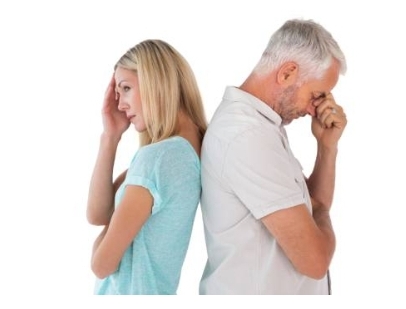Many people’s first thought when they learn that someone is involved in an unhealthy or abusive relationship is, “Why don’t they leave?” This kind of reaction could seem reasonable if you’ve never been in an abusive relationship. Throw up your hands and carry on with your life, right? But the truth is that ending a toxic relationship is never as simple as “just leaving.” Let me explain why.
People may not realize that their relationship is abusive since unhealthy behavior in society is normalized.
When you think that unhealthy or abusive behaviors are normal, it’s hard to identify your relationship as abusive and therefore there’s no reason to seek help.
Your self-esteem is destroyed by emotional abuse, making it feel hard to rebuild. Because there is no physical violence involved, it is common for persons in emotionally abusive relationships to be unaware that they are being mistreated. Many people will also minimize or downplay emotional abuse since they believe it to be less severe than physical abuse. Those who are in abusive relationships find it challenging to leave their spouses after being repeatedly made to feel unworthy and without any other options.
The ride-or-die mentality is reinforced by society. People who are in unstable or violent relationships may choose to remain together or reconcile after a split because they feel under pressure to “ride it out,” “forgive and forget,” or “not give up.” Well a true friend or partner would never put you in danger or do you harm.
Together, they live a life. People who are in violent relationships frequently do so for a variety of reasons, including marriage, children, and shared income. In relationships where one person has a disability, this dependence is accentuated. However, there are other comparable elements that influence young people’s decisions to remain in partnerships, such as common social circles and living arrangements.
The Cycle of Abuse: A make-up honeymoon phase follows every abusive occurrence. When abuse occurs, it frequently is followed by the abuser doing something kind or apologizing and swearing never to do it again. Due to this, their abuser begins to downplay their actions.
intending to save others. Numerous people expressed a wish to support or love their partners in the hopes that doing so would cause a change in the person: “I believed I could love the abuse out of him.” Some tweets, such as “I thought I would be the strong one who would never leave him and show him loyalty,” highlighted internal ideals or commitments to the marriage or partner. I would repair him and instill love in him. Others were sympathetic and put their partner’s needs ahead of their own: “His father died, he became an alcoholic, and said that God wouldn’t want me to leave him because he needed me to make him better.”
Children. In addition, many women sacrificed their own safety to put their children’s needs first: “I was frightened that if he wasn’t abusing me, he would beat his kids. And I placed more value on their lives than on me. Furthermore, “I stayed for years while I protected our children, all the while I was being abused.” Some people said they stayed for the benefit of the kids: “I wanted my son to have a father.”
Uneven power dynamics are a hallmark of abusive partnerships. Abusers exert control over relationships by using abusive or manipulative methods. This can eventually make the victims of abuse feel helpless. Additionally, they might start to think that ending the relationship is not an option. Those who are in abusive relationships may not only feel helpless but also lack resources and support. For instance, a victim of domestic violence may not have access to their own funds and be financially reliant on the abuser. Because of this, it is more difficult for them to secure independent housing.
Societal views, cultural conventions, and religious convictions can all have an impact on a person’s decision to continue being in an abusive relationship. Victims may be discouraged from getting assistance or ending the relationship because to stigma, shame, and fear of condemnation from their community or family.
Isolation: Abusers frequently distance their victims from friends, family, and other support systems, which makes it more difficult for the victims to get assistance or locate a safe place to leave. The victim’s dependence on the abuser may become more pronounced due to a lack of social support and a sense of isolation
Fear of retaliation: If their victims try to flee, abusers may threaten them with physical harm, harm to loved ones, or even death. Particularly if the victim has previously observed or experienced violence, the fear of revenge can be crippling and leave the victim locked in the relationship.
Dependence on money: Abusers frequently utilize economic abuse to keep power. They might manage the victim’s finances, impede access to funds, or obstruct their ability to get a job. The victim may be concerned about their ability to support themselves or their children, which can be a serious obstacle to leaving.
Remember that ending an abusive relationship is a difficult process that calls for thoughtful preparation and assistance. Victims of abuse should seek help from experts who can offer advice, resources, and safety planning customized to their particular circumstance, such as counselors, therapists, or organizations that specialize in domestic violence.

